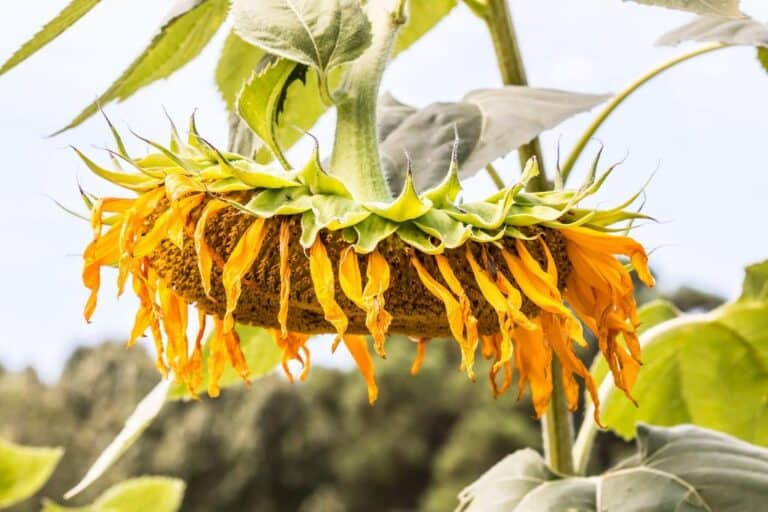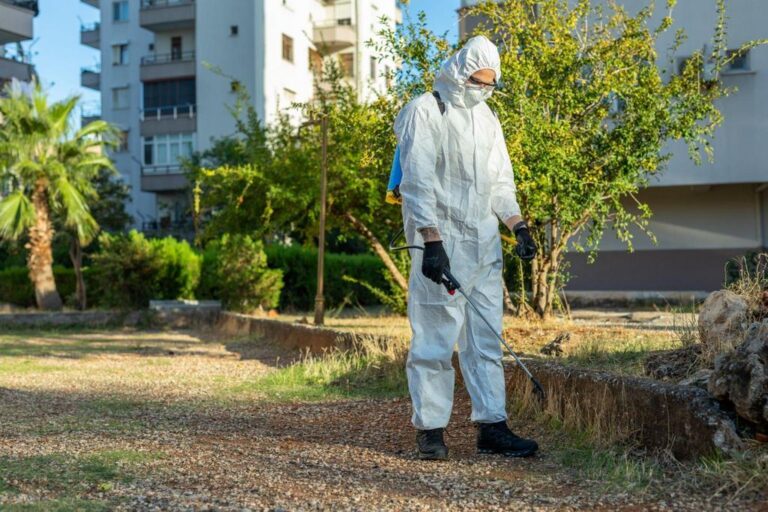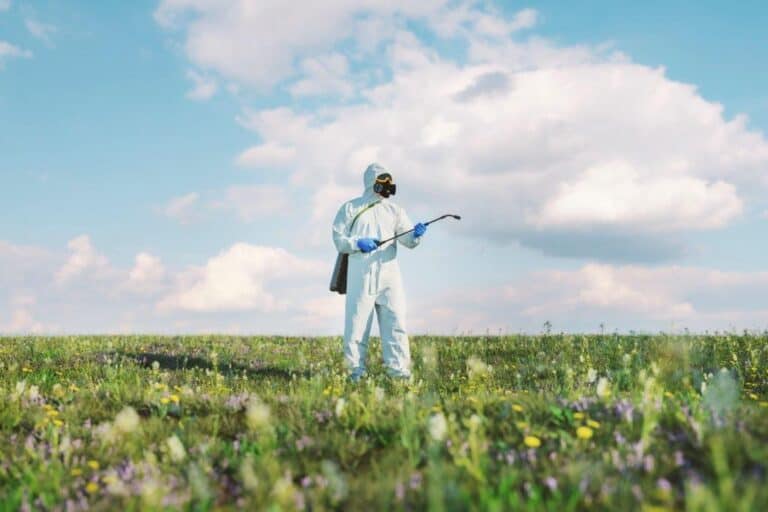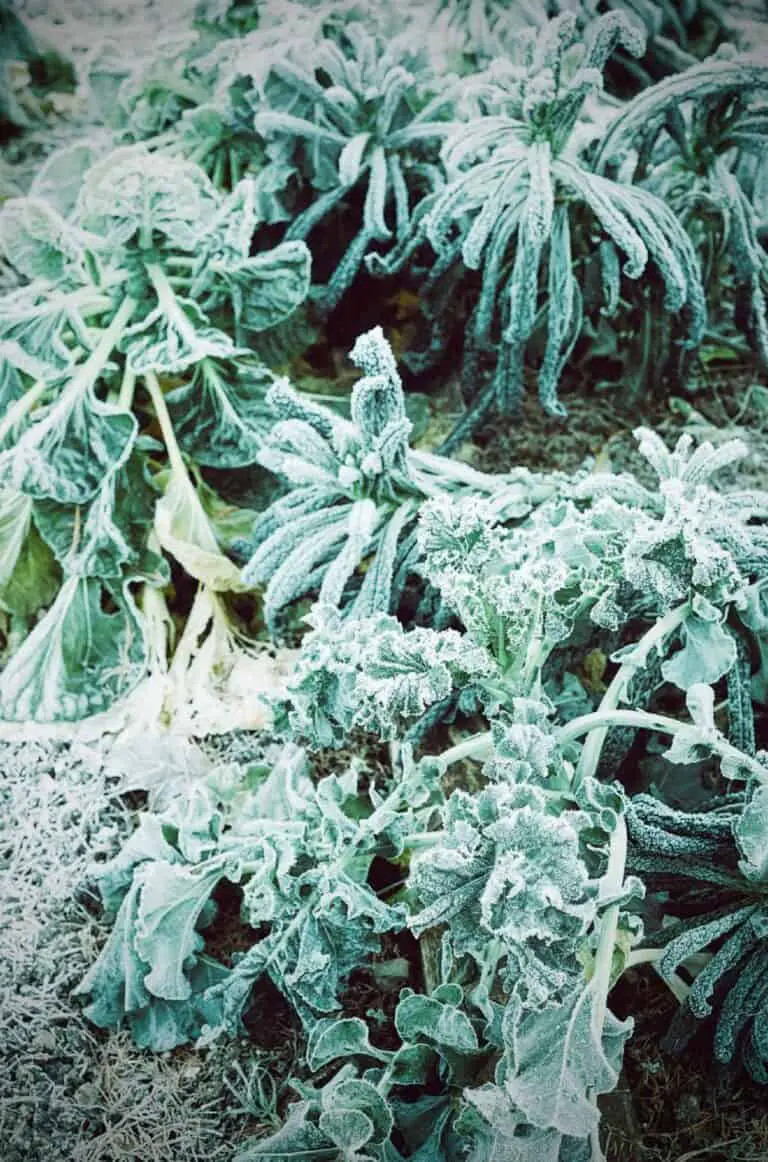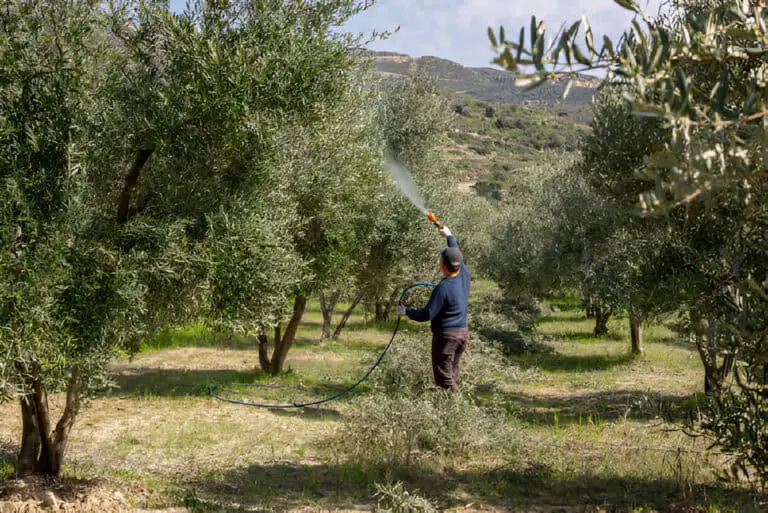Are Non-organic Brussels Sprouts Safe to Eat? Potential Risk of Pesticides?
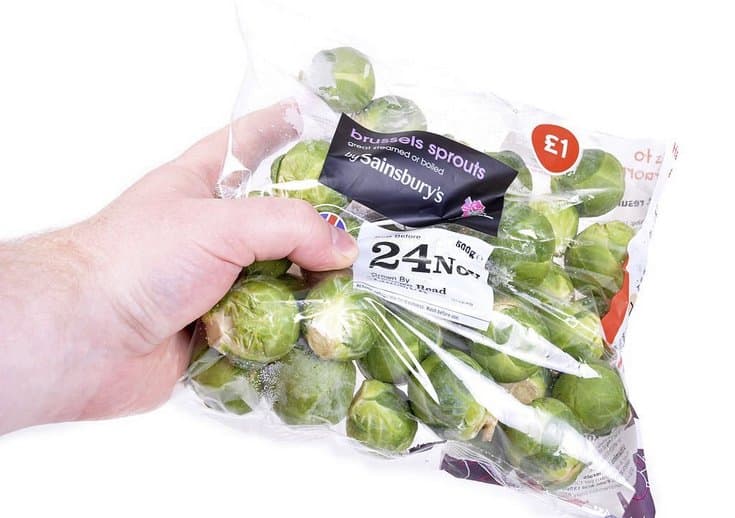
Brussels sprouts, those tiny, green globes that resemble miniature cabbages, have become quite the culinary sensation in recent years. With their rich flavor and impressive nutritional profile, they have earned a well-deserved place on the plates of health-conscious individuals.
But as you peruse the grocery store aisle, contemplating between conventional non-organic or organic options, a nagging question arises: Are conventional non-organic Brussels sprouts safe to eat?
Concerns about pesticide residues and the potential health risks associated with conventionally grown produce are valid. After all, we strive to nourish our bodies with wholesome, untainted food. In this article, we will embark on a journey to uncover the truth about conventional non-organic Brussels sprouts.
We’ll delve into the world of pesticides, explore the nutritional value of these little green powerhouses, and provide you with the information you need to make an informed decision about the safety of including them in your diet.
So, let’s set out on this enlightening exploration and discover the secrets behind conventional non-organic Brussels sprouts!
Introduction to Non-organic Conventional Brussels Sprouts
Non-organic conventional Brussels sprouts are typically grown using conventional farming methods that incorporate synthetic inputs. These methods often involve the use of synthetic fertilizers to provide essential nutrients to the plants and synthetic pesticides to control pests and diseases.
While conventional farming practices aim to optimize crop yields, they may rely more heavily on chemical interventions compared to organic farming.
Take note that governmental organizations regulate the use of synthetic fertilizers and pesticides in conventional farming to ensure their safety for human consumption. These regulatory bodies set maximum residue limits (MRLs) for pesticides, which are the highest allowable levels of pesticide residues on food. Farmers must adhere to these MRLs to ensure that the Brussels sprouts meet safety standards.
However, critics of conventional farming argue that the use of synthetic inputs may have potential negative impacts on human health and the environment. Some concerns include the potential accumulation of pesticide residues in food, the impact of synthetic fertilizers on soil health and water quality, and the development of pesticide resistance in pests.
These concerns have contributed to the growing popularity of organic farming practices, which aim to minimize synthetic inputs and prioritize sustainability.
To provide a glimpse into the production of conventional Brussels sprouts, the table below highlights the top countries in terms of global production:
| Rank | Country | Brussels Sprouts Production (Metric Tons) |
| 1 | China | 2,719,833 |
| 2 | India | 747,900 |
| 3 | United States | 374,172 |
| 4 | United Kingdom | 188,367 |
| 5 | Canada | 137,623 |
As the table illustrates, China leads the world in Brussels sprouts production, followed by India and the United States. These figures demonstrate the widespread cultivation of conventional Brussels sprouts globally, highlighting their popularity and availability in the market.
Are Non-organic Brussels Sprouts Safe to Eat?
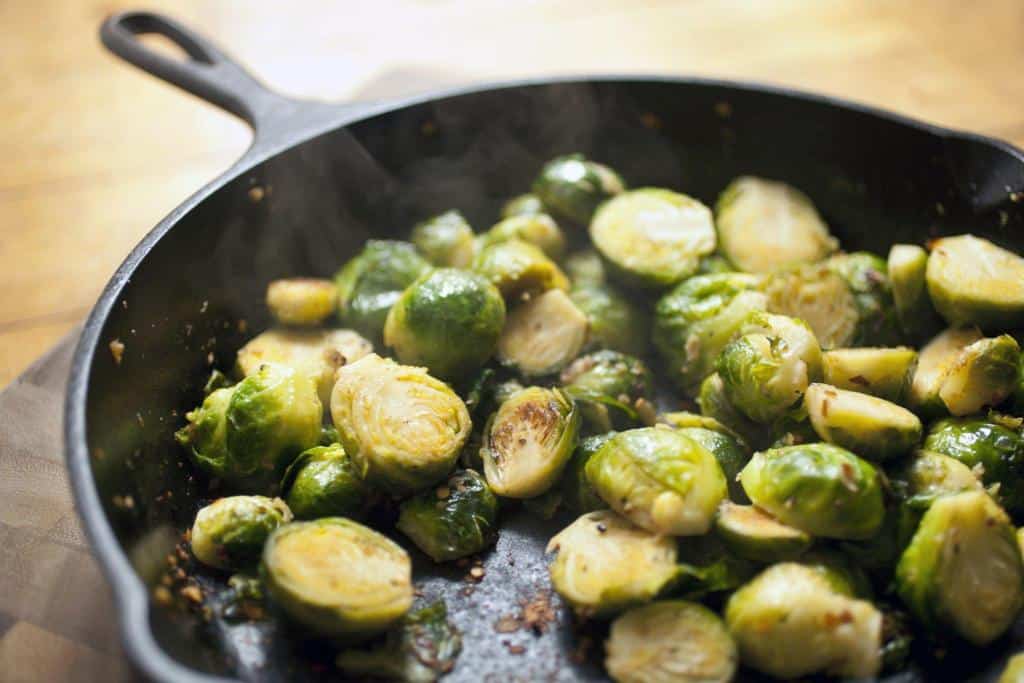
As already mentioned previously, non-organic Brussels sprouts undergo conventional farming practices, which utilize synthetic inputs to promote growth and combat pests. Regulatory bodies set limits on the residues of these synthetic chemicals, ensuring that they fall within safe levels for consumption. Farmers who follow conventional farming methods are required to adhere to these regulations, ensuring that the non-organic Brussels sprouts available on the market are safe to eat.
It is important to note that conventional farming practices have also improved over the years, with increased awareness of environmental sustainability and consumer demands for reduced chemical usage.
Many conventional farmers employ integrated pest management strategies and implement best practices to minimize the environmental impact of their farming methods. This means that non-organic Brussels sprouts can still be grown responsibly and sustainably.
Additionally, purchasing non-organic Brussels sprouts may be more accessible and affordable for some individuals. Organic produce often comes with a higher price tag due to the additional costs associated with organic certification and the use of labor-intensive organic farming methods. Non-organic options allow consumers to enjoy the nutritional benefits of Brussels sprouts without breaking the bank.
Nutritional Value of Non-organic Brussels Sprouts
Brussels sprouts, regardless of whether they are organic or conventional, offer an array of essential nutrients that contribute to a healthy diet. These small, cabbage-like vegetables are rich in vitamins, minerals, and dietary fiber. They are an excellent source of vitamin C, which supports the immune system, and vitamin K, which plays a vital role in blood clotting and bone health.
In addition to vitamins, Brussels sprouts contain folate, potassium, and antioxidants. They are also low in calories and high in fiber, making them a nutritious addition to your plate. When it comes to comparing the nutritional content between organic and conventional Brussels sprouts, the differences are generally minimal. Both varieties offer similar nutrient profiles, ensuring you reap the benefits of these healthy vegetables.
Pesticide Use in Non-organic Brussels Sprouts
One concern often associated with conventional farming is the use of pesticides. Conventional non-organic Brussels sprouts may be treated with pesticides to protect them from pests, diseases, and weeds. These pesticides, which can be synthetic or derived from naturally occurring substances, are intended to safeguard the crop during cultivation.
However, it’s important to address the potential risks and concerns associated with pesticide residues. While regulatory bodies set guidelines and maximum residue limits (MRLs) to ensure consumer safety, trace amounts of pesticides may still be present on the surface of non-organic Brussels sprouts. The good news is that washing and cooking Brussels sprouts can help further reduce pesticide residues.
Read: What Happens if You Eat Bad Brussel Sprouts?
Tips for Reducing Pesticide Exposure
Whether you choose conventional non-organic or organic Brussels sprouts, there are several steps you can take to further reduce pesticide exposure:
- Wash Thoroughly: Regardless of whether your Brussels sprouts are organic or conventional non-organic, it is always a good practice to wash them thoroughly before consuming. Washing can help remove any potential pesticide residues as well as dirt or bacteria that may be present on the surface. Use cool running water and gently rub the sprouts to ensure a thorough cleaning.
- Peel Outer Leaves: If you notice any damaged or discolored outer leaves on your Brussels sprouts, it is best to peel them away before cooking or eating. This can further reduce the potential presence of residues or contaminants.
- Choose Fresh Brussels Sprouts: When purchasing Brussels sprouts, opt for fresh-looking ones. Fresh sprouts are less likely to have significant pesticide residues compared to those that have been stored for a long time.
- Buy Locally: Consider purchasing Brussels sprouts from local farmers or farmers’ markets. Locally sourced produce often undergoes less handling and transportation, reducing the chances of pesticide contamination.
- Grow Your Own: If you have the opportunity and space, why not try growing your own Brussels sprouts? By doing so, you have full control over the cultivation process and can ensure that no synthetic pesticides or fertilizers are used.
Safety Regulations and Testing in Conventional Non-organic Brussels Sprouts
To ensure the safety of conventional non-organic Brussels sprouts, governmental regulations and safety standards are in place. These regulations vary across countries, but their purpose is to establish guidelines for pesticide use and set limits for residue levels. By adhering to these guidelines, farmers can minimize pesticide exposure risks for consumers.
Testing procedures are conducted to monitor pesticide residues in non-organic Brussels sprouts. Samples are collected from farms and markets and analyzed in accredited laboratories. These tests verify if the pesticide residues are within the approved limits and help ensure compliance with safety standards.
Health Benefits and Risks of Consuming Conventional Non-organic Brussels Sprouts
Now let’s delve into the health benefits of consuming conventional non-organic Brussels sprouts. These nutrient-dense vegetables offer a range of advantages. Firstly, their high fiber content supports digestive health and helps regulate blood sugar levels. Brussels sprouts also provide a good amount of vitamins and minerals that contribute to overall well-being.
However, it’s crucial to consider the potential risks associated with non-organic production. While the pesticide residues found on non-organic Brussels sprouts are generally within safe limits, some individuals may have heightened sensitivities or concerns about pesticide exposure. Washing and cooking Brussels sprouts can help reduce pesticide residues and alleviate potential risks.
It’s worth noting that choosing organic Brussels sprouts, which are grown without synthetic pesticides and fertilizers, can be a viable option for individuals seeking to minimize their exposure to pesticides. Organic farming practices prioritize natural methods of pest control and focus on soil health for planting Brussel sprout, promoting a more environmentally friendly approach.
In addition to the safety considerations, opting for organic Brussels sprouts supports sustainable agriculture. Organic farming practices aim to minimize the impact on the environment by avoiding the use of synthetic chemicals and genetically modified organisms (GMOs). By choosing organic, you contribute to the preservation of biodiversity and promote healthier ecosystems.
The Organic Option: An Alternative
Opting for organic Brussels sprouts not only reduces potential pesticide exposure but also supports environmentally sustainable practices. Organic farming focuses on maintaining soil health through techniques like composting, crop rotation, and biological pest control. These methods promote biodiversity, protect water quality, and reduce the carbon footprint associated with conventional farming.
To better understand the growth of organic Brussels sprouts, let’s take a look at the increase in organic farming certifications in the United States between 2015 and 2021:
| Year | Certified Organic Farms (U.S.) |
| 2015 | 14,979 |
| 2016 | 15,515 |
| 2017 | 17,032 |
| 2018 | 17,750 |
| 2019 | 18,166 |
| 2020 | 18,610 |
| 2021 | 19,125 |
The table demonstrates a consistent rise in the number of certified organic farms in the United States, indicating the growing popularity and demand for organic produce, including Brussels sprouts.
Choosing organic Brussels sprouts not only supports your personal health but also contributes to a more sustainable and ecologically friendly food system. By opting for organic options, you can enjoy Brussels sprouts that are free from synthetic pesticides and fertilizers while supporting farmers who prioritize environmental stewardship and sustainable agricultural practices.
Conclusion
When it comes to the safety of consuming conventional non-organic Brussels sprouts, it’s important to consider the potential risks associated with pesticide residues. While regulatory bodies establish guidelines and conduct testing to ensure safety, some individuals may prefer to choose organic options as a way to minimize their exposure to synthetic pesticides.
Nevertheless, conventional non-organic Brussels sprouts offer valuable nutritional benefits and can be enjoyed as part of a healthy diet. They are packed with essential vitamins, minerals, and fiber that contribute to overall well-being. By washing and cooking Brussels sprouts, you can further reduce pesticide residues and mitigate potential risks.
Ultimately, the decision of whether to consume conventional non-organic Brussels sprouts or opt for organic varieties depends on your personal preferences, values, and concerns. Whichever choice you make, incorporating Brussels sprouts into your
FAQs
Can I reduce pesticide residues on non-organic Brussels sprouts by peeling them?
Peeling Brussels sprouts may remove some pesticide residues on the outer leaves, but it won’t eliminate them entirely. Washing and cooking the sprouts are more effective methods of reducing residues.
How should I cook conventional non-organic Brussels sprouts to maximize their nutritional value?
Steaming or lightly sautéing Brussels sprouts can help retain their nutritional value. Avoid overcooking them to preserve their nutrients.
Can I grow my own Brussels sprouts without using pesticides?
Yes, you can grow your own Brussels sprouts using organic gardening methods that exclude synthetic pesticides. Consider companion planting and natural pest control techniques to protect your plants.
What are the environmental impacts of non-organic Brussels sprout production?
Conventional farming practices, including the use of synthetic fertilizers and pesticides, can contribute to soil and water pollution, as well as the loss of beneficial insects and wildlife.

